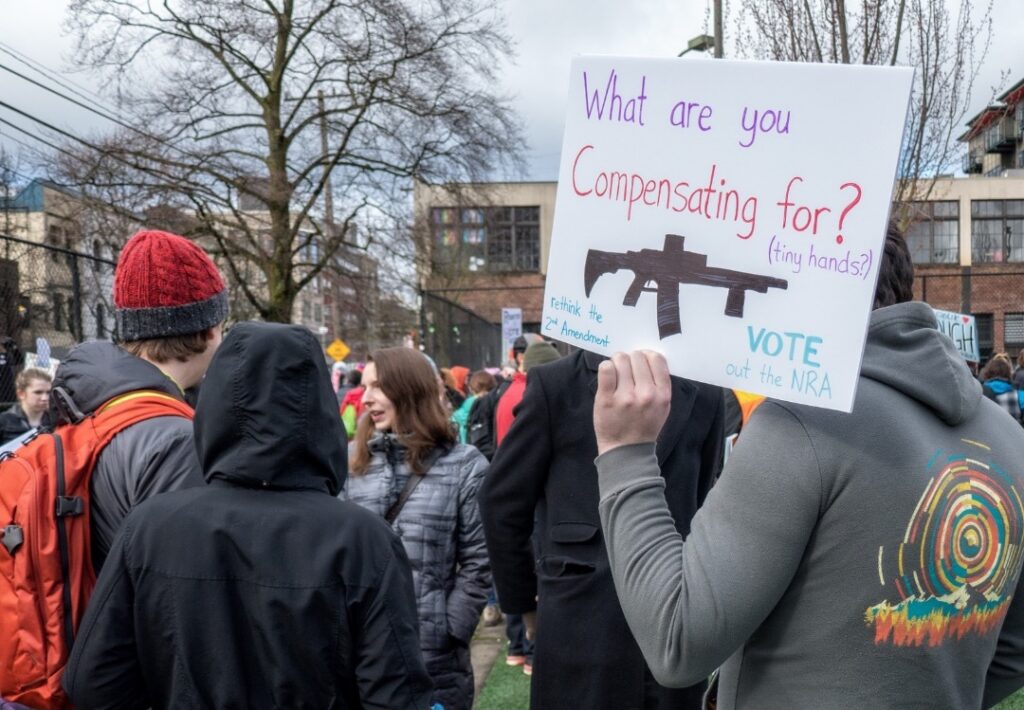Just yesterday, I met with an administrator from my high school and a former peer for lunch. As we laughed and reminisced on our time in school, we underscored the importance of the classroom and how school provided us with a safe space to find ourselves and our passions. Yet, in the US, that vision is not a reality.
At Robb Elementary school in Uvalde, Texas, a town of approximately 15,000 people, an 18-year-old opened fire, killing 19 students and three adults, with this number still being updated. The 18-year-old shooter is dead. This shooting is the deadliest since Sandy Hook in 2012 when 20 elementary school children and six faculty members were killed.
Thus far this year, there have been 288 mass shootings in the US and 28 school shootings. In comparison, there were eight school shootings in Mexico that have occurred this year; yet, Texas politicians are more concerned about building a wall to keep “dangerous” migrants out, instead of actually protecting our children on the ground from domestic terrorism. In Canada, 900 people died of gun violence last year. Whereas, in the US a staggering 30,000 were killed. On any day in the US, approximately 100 people die from a gun.
The horror of each life taken should be enough for the US to take action on creating increased gun control legislation. But as we have all seen, nothing changes. There are 393 million guns in America. There are more guns in the US than Americans. Several changes can be made to curb this issue and enact real change. A study at Harvard University and Northeastern University found that 22% of gun sales happen without a background check. Increased background checks, such as passing the Fix NICS Act, which was introduced in 2017, provide funding for states to improve their background check system so that records are updated. Overlooks from the National Instant Criminal Background Check System, in 2017, allowed a shooter to kill 26 people at a church in Sutherland Spring, Texas, as he was able to buy a gun despite a domestic violence conviction in the Air Force. This conviction should have come up if the system was updated correctly and that mass shooting, hopefully, avoided.
The passage of the Manchin-Toomey Act, which was introduced in 2013 following Sandy Hook, would require background checks for sales made online or at gun shows. Sales made on these platforms do not require background checks for sales between friends and family. While the Fix NICS Act is more feasible to pass in the short term, to genuinely stop mass shootings, the Manchin-Toomey Act must be passed.
Banning assault weapons also is a significant measure that must be taken to prevent mass shootings. Following an uptick in mass shootings in 1994, President Bill Clinton signed the 1994 Assault Weapons Ban, which expired in 2014. Both in Sandy Hook and Parkland, an AR-15 or similar model has been used. These weapons can kill victims more quickly and produce deadlier wounds. Banning bump stocks, which are an attachment to semi-automatic weapons that can improve the rate of fire for the gun, must happen. After the 2018 Las Vegas shooting, the deadliest shooting in US history, members of both parties expressed interest in banning bump stocks as the killer used them against his victims. Despite considerable bipartisan support for this ban, action has not been taken. The creation of more “Red Flag” laws, which allows the court to take away someone’s ability to buy a gun if a family, household member, or police deem them as an extreme threat, also must become more common in the US. Although there was also some bipartisan support for this type of legislation, the NRA strongly opposes this stance as it would “deprive someone of their Second Amendment rights without due process of the law”.
The NRA and Republican lawmakers often refuse to sign and actively fight against these legislation proposals using Second Amendment rights and mental health as their primary rebuttals. The NRA has consistently lobbied the US lawmakers to protect guns, with Mitt Romney receiving over 13,000,000 in donations from the NRA over his career. Republican lawmakers accept this money and respond to these tragedies by stating that mental health is the real issue at play. According to The Social Science Quarterly in 2017, gun owners are more likely to blame factors such as parenting and popular culture for the problem than non-gun owners.
Senator Chris Murphy of Connecticut stated, “Spare me the bullshit about mental illness. We don’t have any more mental illness than any other country in the world. You cannot explain this through a prism of mental illness, because we don’t – we’re not an outlier on mental illness. We’re an outlier when it comes to access to firearms….” Joe Biden added to these sentiments saying, “Where the God is our backbone?” I couldn’t say it better myself.
For a country not at war, it is unacceptable that children fear going to school, the movies or the park due to gun violence. And that is the reality we have just accepted — this reality is completely unacceptable. If a human’s worst nightmare is getting a call that your child has died, why are we not doing everything in our power to stop gun violence, especially when this issue affects everyone and the majority of Americans want increased gun control?
Our lack of action is the same logic as to why we did not act to stop the spread of COVID-19 in 2020 because we thought it would never personally kill or profoundly affect ourselves or family members. Or the same reason we don’t act on climate change is that you will never be forced to be a climate refugee. They say that we need to “protect our rights” or “take care of the economy,” but what about the right to live, to exist. Where is our humanity? This logic is false, selfish, and frankly idiotic. Something needs to change. Now.







